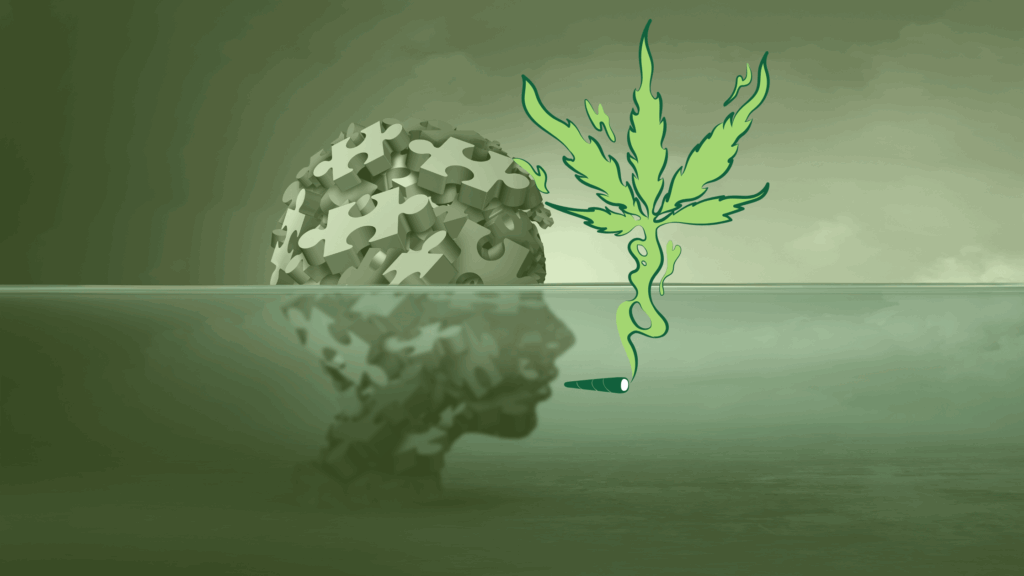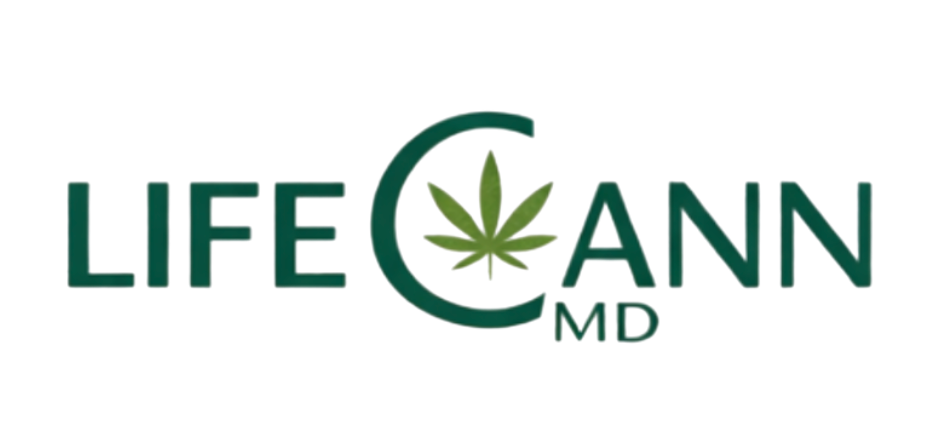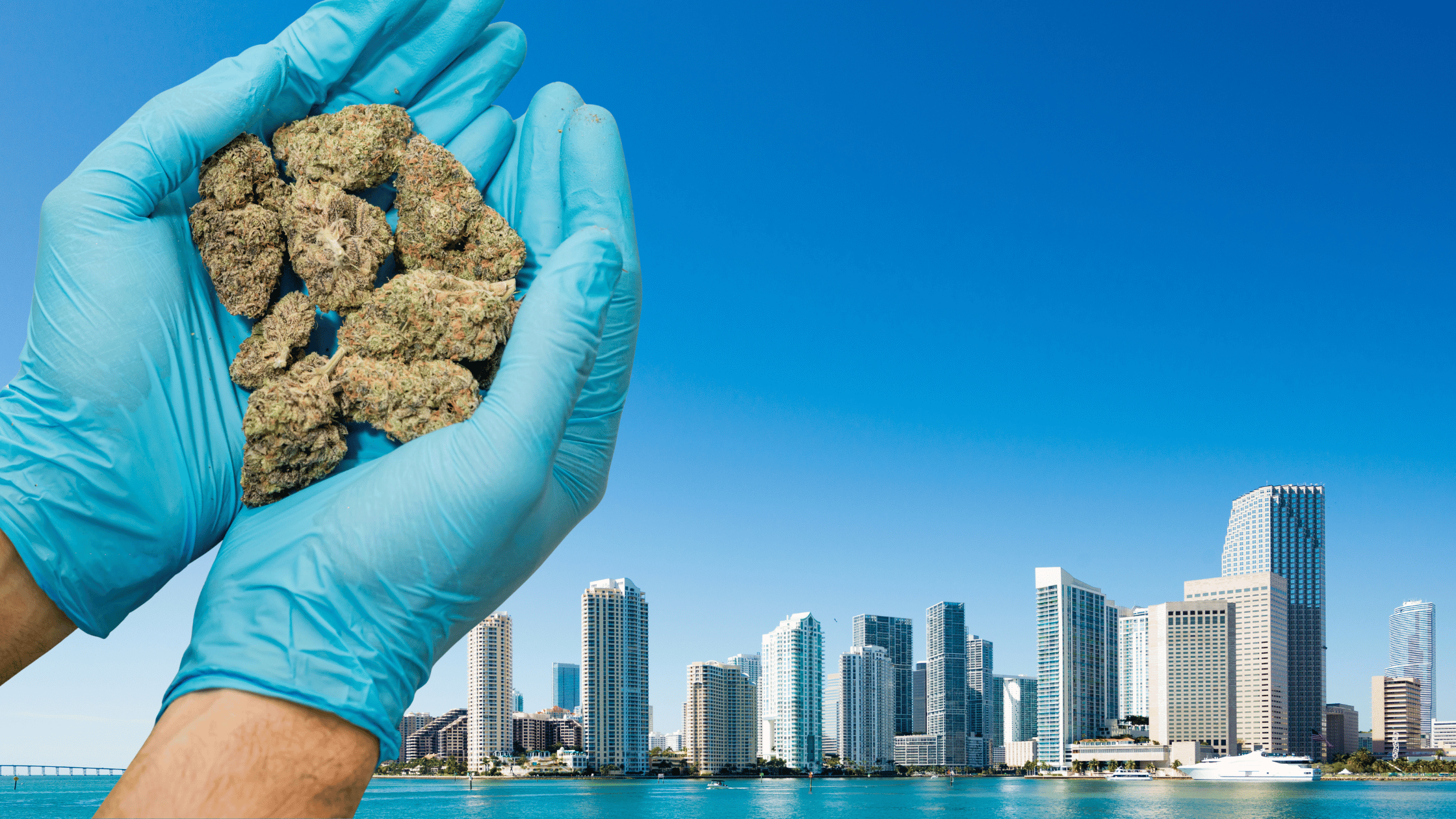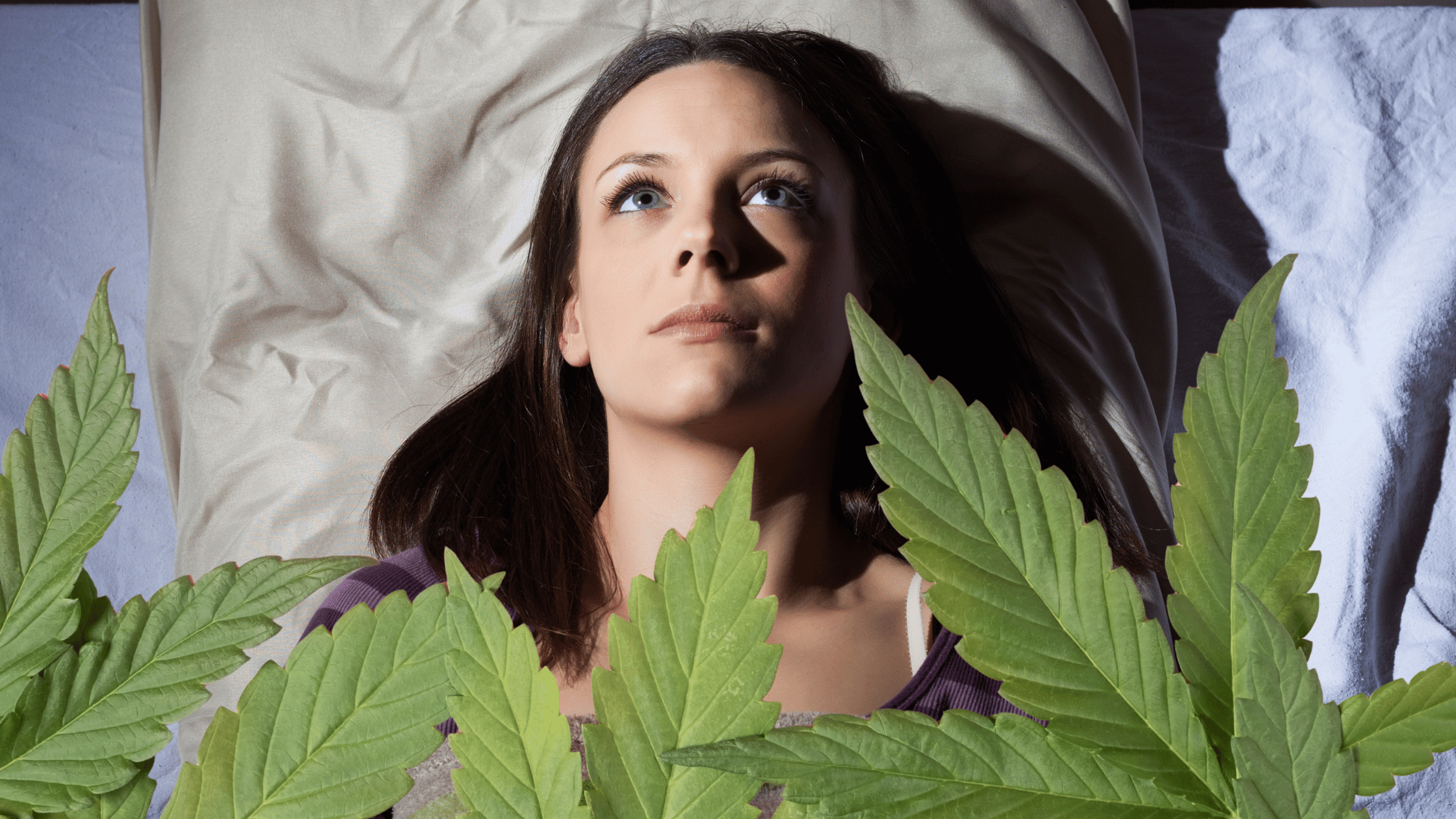
Since 2016 when Florida passed Amendment 2 allowing for doctor-recommended cannabis for various debilitating conditions, our Miami clinic, backed by our double board-certified physician has been recommending medical cannabis for the treatment of PTSD, anxiety and depression.
If you or someone you know is wondering if marijuana may be the answer, lets have a chat. You do not have to suffer in silence. Maybe you’ve tried therapy or other medications, and you’re still struggling with depression, anxiety, or PTSD. It’s frustrating when nothing seems to work, right?
If you’re wondering whether medical cannabis might actually help you or a loved one, you’re definitely not the only one asking that question. More and more people are discovering that marijuana could help where other treatments have fallen short—and honestly, the research is starting to back that up.
When you’re dealing with depression, anxiety, or PTSD, it’s as if there are constant traffic jams, construction zones, and confusing detours everywhere you turn. Life feels chaotic and overwhelming because nothing’s flowing the way it should. Medical marijuana? It’s like having a really good traffic controller step in—someone who knows exactly where the problems are and how to get things moving smoothly again.
Recent research shows promising results that might change how you think about mental health treatment in the Sunshine State. Medical marijuana may just be the key to restoring a smoother flow and balance to your mental state.
The Science Behind Cannabis and Anxiety
Here’s something fascinating: your body already produces its own cannabis-like compounds. Scientists call this the endocannabinoid system, and it’s like having an internal pharmacy designed to manage mood, stress, and emotions. When this system gets out of whack—which often happens with mental health conditions—medical cannabis may help restore balance.
Recent studies from 2025 have examined the relationship between cannabis and depression, finding that while the connection is complex, many patients report significant improvements in their quality of life when using medical marijuana properly under professional guidance.
Depression: Breaking Through the Darkness
If you’re battling depression, you know how it feels when nothing seems to lift that heavy blanket of sadness. Traditional antidepressants don’t work for everyone—in fact, about 30% of people don’t respond to standard treatments. That’s where medical marijuana for depression enters the picture.
Cannabis compounds, particularly CBD and THC, interact with your brain’s serotonin system differently than typical antidepressants. Instead of blocking receptors, they encourage your brain to produce more of its own feel-good chemicals. It’s like teaching a man to fish versus giving him a fish—you’re helping your brain help itself.
Many Florida MMJ patients tell us they’ve noticed:
- Better sleep quality (crucial for depression recovery)
- Increased appetite and enjoyment of food
- More motivation to engage in daily activities
- A gentler lift in mood without the harsh side effects of some pharmaceuticals
Our comprehensive guide on medical marijuana for anxiety and mood disorders explores these benefits in greater detail.
Anxiety: Calming the Storm
Anxiety disorders can feel like having a smoke alarm that won’t stop beeping—even when there’s no fire. Clinical trials from 2024 showed that CBD-dominant medical cannabis products significantly reduced anxiety levels in patients with moderate to severe symptoms.
The magic happens because CBD works on multiple pathways simultaneously. While traditional anti-anxiety medications often target just one system, CBD influences serotonin receptors, reduces inflammation in the brain, and helps regulate your body’s stress response. It’s like having a Swiss Army knife for anxiety instead of just a single-purpose tool.
Research from Washington State University found that cannabigerol (CBG)—another compound in cannabis—reduced anxiety within 20 minutes of consumption, with effects lasting over an hour.
However, there’s a catch: not all cannabis helps anxiety. High-THC strains can actually increase anxiety in some people. That’s why working with a knowledgeable Florida medical marijuana doctor is the best thing you can do. Dr. Fernando Fandiño-Sende help you find the sweet spot. He is a cannabis dosage expert for qualifying conditions.
PTSD: Healing Invisible Wounds
For those carrying the weight of trauma, PTSD symptoms can feel like being stuck in a horror movie that plays on repeat. Daily diary studies with licensed medical cannabis patients showed that marijuana use significantly reduced nightmares and early awakenings—two hallmark symptoms that make PTSD so debilitating.
Your brain’s fear center, the amygdala, becomes hyperactive with PTSD. Think of it as a security guard who’s seen too much and now treats every shadow as a threat. Cannabis compounds help calm this overactive system by binding to cannabinoid receptors concentrated in fear-processing areas.
Frontiers in Psychiatry research explains how THC helps with fear memory extinction—essentially helping your brain learn that you’re safe now, even when trauma memories surface.
Veterans, in particular, have found relief through medical cannabis for PTSD. One federal study found favorable results for smoked cannabis in treating PTSD symptoms, though it’s worth noting that the VA/DoD still doesn’t officially recommend cannabis due to mixed research results.
Learn more about PTSD treatment options and how medical marijuana can be integrated into comprehensive care plans.
Navigating Florida’s Medical Marijuana Program
Florida’s medical cannabis program isn’t just “anything goes”—it’s a regulated system designed to protect patients while providing access to potentially life-changing treatments. Since 2016, the program has grown from a small pilot to one of the most robust medical marijuana systems in the country.
Do You Qualify for a Medical Marijuana Card in Florida?
Here’s where it gets interesting: while PTSD explicitly qualifies for Florida’s medical marijuana program, depression and anxiety aren’t specifically listed. Don’t let that discourage you, though. Many patients with these conditions qualify under broader categories like:
- Chronic nonmalignant pain (often accompanies mental health conditions)
- Medical conditions of similar nature to those listed
- Conditions causing chronic symptoms that significantly impact daily life
Your qualified physician will evaluate your specific situation. Many patients are surprised to learn they qualify when they thought they wouldn’t.
Getting Your Medical Marijuana Card: It’s Easier Than You Think
The process flows like this:
Step 1: Schedule with a Florida-qualified medical marijuana doctor (like board-certified Dr. Fernando Fandino-Sende at LifeCannMD).
Step 2: During your evaluation, you’ll discuss your symptoms, current treatments, and how cannabis might fit into your care plan. This isn’t about getting high—it’s about getting relief.
Step 3: If approved, we will go the extra route and enter you into the Florida’s Medical Marijuana Use Registry and apply for your state ID card online.
Step 4: Once approved (same day) you can visit the dispensary. No need to wait for your physical card (usually within 10-14 business days). You can visit licensed dispensaries throughout Florida.
For detailed instructions, check out our complete guide on how to get medical marijuana in Florida.
What You’ll Find at Florida Dispensaries
Florida’s medical marijuana market offers more options than a kid has in a candy store. Each product type works differently, giving you flexibility to find what works best for your lifestyle:
Flower: The classic option. Perfect for patients who want precise control over dosing and prefer inhalation methods.
Vaporizers: Think of these as the middle ground—you get fast-acting relief without combustion’s harsh effects on your lungs.
Tinctures: These sublingual oils offer precise dosing and discreet use. Perfect for workplace anxiety or when you need medication without anyone knowing.
Edibles: Medical marijuana edibles in Miami and throughout Florida provide long-lasting effects that fit seamlessly into your daily routine.
Topicals: Great for localized pain that often accompanies mental health conditions, without any psychoactive effects.
Finding Your Perfect Match: Strain Selection Made Simple
Not all cannabis is created equal—especially when you’re treating mental health conditions. Think of choosing strains like picking the right tool for a job. You wouldn’t use a hammer to fix a watch, right?
Our comprehensive Florida marijuana strains guide can help you understand your options better.
For Depression: Energizing Uplift
When depression has you feeling like you’re walking through molasses, sativa-dominant strains often provide the energy boost you need. Look for strains high in:
- Limonene (gives citrus fruits their scent): naturally mood-lifting
- Pinene (found in pine needles): may improve focus and alertness
- THC in moderate amounts: can provide euphoric effects without sedation
Popular Florida strains for depression include Green Crack, Jack Herer, and Durban Poison. However, remember—what works for your friend might not work for you. Start low, go slow.
For Anxiety: Gentle Calm
Anxiety treatment requires a delicate touch. Recent research confirms that CBD-heavy strains work best for most anxiety patients. Look for:
- High CBD ratios (2:1 CBD to THC or higher)
- Myrcene: promotes relaxation
- Linalool (found in lavender): naturally calming
Strains like Charlotte’s Web, ACDC, and Harlequin have helped countless Florida patients find their calm without the couch-lock effect.
For PTSD: Balanced Relief
PTSD treatment often requires a more complex approach. Many patients benefit from balanced THC/CBD ratios that address multiple symptoms simultaneously:
- For nightmares: indica-dominant strains with myrcene
- For hypervigilance: balanced hybrids with both THC and CBD
- For intrusive thoughts: strains with higher CBD content
Read our detailed article on medical marijuana and PTSD for specific strain recommendations.
Dosing: The Art and Science of Getting It Right
Here’s the golden rule of medical cannabis: start low, go slow, and be patient. Unlike traditional medications with standard dosing, cannabis affects everyone differently. What relieves your neighbor’s anxiety might knock you out for hours or leave you feeling more anxious.
The Microdosing Revolution
Many patients find relief with surprisingly small amounts. Microdosing—using just 2.5-5mg of THC or 5-10mg of CBD—often provides therapeutic benefits without impairment. It’s like adjusting the volume on a radio instead of switching stations entirely.
Learn more about microdosing cannabis in Miami and throughout Florida.
Timing Matters
When you take your medicine can be just as important as how much:
- Morning doses: Great for depression and fatigue
- Afternoon doses: Perfect for workplace anxiety
- Evening doses: Ideal for sleep issues and PTSD nightmares
Consistency Is Key
Your endocannabinoid system responds better to regular, consistent dosing rather than sporadic use. Think of it like taking vitamins—you wouldn’t expect results from taking them once in a while.
For comprehensive guidance, check our marijuana dosing recommendations for various conditions.
Safety First: What You Need to Know
While medical cannabis is generally well-tolerated, it’s not risk-free. Being informed keeps you safe and helps you make the best decisions for your health.
Common Side Effects (They’re Usually Manageable)
- Dry mouth: Keep water handy and consider sugar-free gum
- Red eyes: Over-the-counter eye drops work wonders
- Mild dizziness: Usually passes quickly; sit down if needed
- Changes in appetite: Can be beneficial if depression has affected your eating
- Cognitive changes: Typically mild with proper dosing
Important Warnings
- Don’t drive under the influence: Florida has strict DUI laws that include marijuana
- Be cautious with other medications: Cannabis can interact with blood thinners and seizure medications
- Pregnancy and nursing: Avoid cannabis entirely during these times
- Heart conditions: High-THC products can increase heart rate
Building Your Support Team
Medical marijuana works best when it’s part of a comprehensive treatment plan. You’re not just treating symptoms—you’re building a foundation for long-term mental wellness.
Your Medical Marijuana Doctor
Choose someone who specializes in cannabis medicine. They should:
- Understand different strains and their effects
- Monitor your progress regularly
- Adjust recommendations based on your response
- Coordinate with your other healthcare providers
Our same-day medical marijuana cards service can get you started quickly with qualified professionals.
Your Mental Health Professional
Don’t abandon therapy or other mental health treatments. Research shows that cannabis often works best alongside traditional therapies, not as a replacement for them.
UK Medical Cannabis Registry data shows significant improvements in quality of life for patients using medical cannabis for PTSD and depression.
Looking Ahead: The Future Looks Bright
Florida continues expanding its medical marijuana program based on emerging research and patient needs. Universities throughout the state conduct cutting-edge research on cannabis and mental health, ensuring Florida patients have access to the latest scientific findings.
Clinical trials are ongoing investigating specific CBD formulations for anxiety disorders, with promising early results. As research continues, we’ll likely see more targeted treatments and better understanding of optimal dosing protocols.
Explore the future of medical marijuana and what it means for Florida patients.
Taking Your Next Step
If you’re considering medical marijuana for depression, anxiety, or PTSD, don’t let uncertainty hold you back. The science is promising, Florida’s program is patient-friendly, and we are ready to help.
Start with a consultation at LifeCannMD. We’ll evaluate your specific situation, discuss how cannabis might fit into your treatment plan, and guide you through every step of the process. You don’t have to navigate this journey alone.
Remember, healing isn’t about finding a magic cure—it’s about finding tools that help you live the life you deserve. For many Florida patients, medical cannabis has become one of the most valuable tools in their mental health toolkit.
Ready to explore whether medical marijuana could help you? Contact LifeCannMD today to schedule your consultation. Your path to better mental health might be closer than you think.
Frequently Asked Questions
Q: Can I get a medical marijuana card for anxiety in Florida? A: While anxiety isn’t explicitly listed, many patients may qualify under chronic pain or similar conditions. Dr. Fernando Fandiño-Sende can evaluate your specific case.
Q: How much does a medical marijuana card cost in Florida? A: State fees are $75, plus doctor consultation fees. We offer competitive pricing and transfer options.
Q: What’s the best way to consume medical marijuana for anxiety? A: Many patients prefer sublingual tinctures or edibles for anxiety, as they provide longer-lasting, more controlled effects.
Q: Are there side effects to using medical marijuana for mental health? A: Common side effects are mild and include dry mouth, red eyes, and slight dizziness. Proper dosing minimizes these effects.
Q: Can I use my Florida medical marijuana card in other states? A: Florida has limited reciprocity. Never travel with your medication, but bring your medical marijuana card as many states offer discounts for those who have one.


